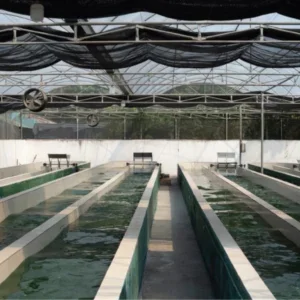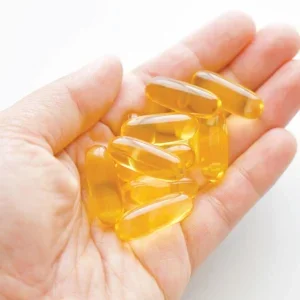The oceans are a valuable natural resource that will have to be explored further if the world is to find ways to sustain an increasing population.
Omega oils are a good example of the type of marine ingredient that could be discovered in the future, and the trade press is filled with stories about business adventures in these polyunsaturated essential fatty acids (PUFAs). For example: Algae Biosciences Corporation – a high-profile new entrant to the omega-3 fatty acid market – has unveiled detailed figures on anticipated production volumes after finalising a deal to build the first phase of its new production facility, and aims to supply commercial quantities of EPA/DHA-rich oil from microalgae by early next year.
Another company, Neptune, is planning to increase production capacity from 130MT/year to almost 500MT by 2014, while Aker BioMarine now has a deal to supply a Chinese customer with a minimum of 230MT of krill oil over the next five years.
Nutrients from the sea
A host of marine ingredients are being revealed to have health benefits. For example, a Danish longevity study of Greenland’s Eskimos, who have a diet high in n-3 fatty acid, revealed a lower mortality from coronary heart disease than Danes and Americans.
Traditional seafood locations seem to consume significantly high amounts of other important nutrients such as vitamins A, D, and iron.
A recent French study demonstrated that seafood at least twice a week gave a nutritional status significantly more positive than the average population. In the study, intakes were assessed for 33 nutrients and showed that most micronutrient balances were higher than in the general French population, the highest being for vitamins C, E and magnesium. Similarly, recent studies of traditional Japanese foods and seaweed consumption (nori, kombu and hijiki) revealed that feeding on seaweed, or its extract, lowered blood pressure and may have preventative functions for cardiovascular health.
Dieting on marine resources can provide very good nutrition for much of the world’s population. The downside is that most marine foods have at least some degree of chemical contamination, including methylmercury (which binds to muscle) and/or persistent organic pollutants such as dioxins, polychlorinated biphenyls, polybrominated diphenyl ethers, and chlorinated pesticides, which concentrate in fish fat.
Yet this is exactly where a professional marine ingredient industry can make a difference, firstly by eliminating toxins, secondly by using food industrial waste to create cost-efficient premium nutrition, and thirdly to investigate industrial applications of the vast algae and crustacean mass found in oceans. Minute marine plants are also excellent nutrients for humans, and many marine organisms have developed unique properties and bioactive compounds that, in some cases, are unparalleled by terrestrial organisms.
Proteins, peptides and enzymes
Fish proteins, such as collagens and their gelatine derivatives, operate at relatively low temperatures and can be used in heat-sensitive processes such as gelling and clarifying. Collagen derived from fish living in warm waters, such as tuna, have a composition that’s higher in proline and hydroxyproline, the main amino acids for human skin collagen. As a result, fish collagens now find their way into many skin-enhancing food and beverage items, as healthy skin depends on continuous collagen build up.
Marine-derived peptides from fish carcasses have demonstrated various bioactive functions, such as being hypotensive, calcium chelating, anti-coagulative, anti-diabetic and anti-microbial. One of the hottest is the bonito tuna peptide, which is not human clinically substantiated except in pilot studies, but is sold in many supplements for its anti-hypertensive effects.
The super food blue/green micro algae Spirulina is very high in proteins and has demonstrated antimicrobial, immunomodulation and cell-protecting functions due to a high content of chlorophylls and micro elements. Also, marine enzymes extracted from fish and marine microorganisms can provide numerous advantages over traditional enzymes used in food processing due to their ability to function at extremes of temperature and pH.
Fibres
Polysaccharides derived from algae, including alginates, carrageenans and agars, are widely used for their ability to form gels and act as thickeners and stabilisers in a variety of foods.
However, the current focus on, for instance, digestive health offers new opportunities as the digestibility of many of these fibres is low due to them being cellulose, xylans and mannan types. The polysaccharide chitins derived from shells of crabs and shrimps and deacetylated to the compound chitosan are well-established fat scavengers that prevent that fat from being absorbed into the body.
Polysaccharides from the brown algae fucoïdan contain a substantial percentage of L-fucose, while sulphate ester groups have been extensively studied due to their numerous biological properties, which include being anti-coagulant and anti-thrombotic, anti-tumor, antiviral, and possibly anti-inflammatory as they function as a nitric oxide scavenger.
Carotenoids
Carotenoids are generally microalgae-derived beta-carotenes. The carotenoid astaxanthin has a much stronger antioxidant capacity than traditional carotenoids and therefore is gaining more and more interest as a healthy ingredient.
Another carotenoid is fucoxanthin, which is found naturally in the brown seaweed wakame (Undaria pinnatifida). Wakame is extensively cultivated and eaten both fresh and dried in Japan for its health-giving properties, including its ability to keep skin looking young and beautiful. Wakame is rich in sodium, iron and potassium, and contains 15 times more calcium than milk. These minerals are essential to maintain the skin’s moisture balance, and keep it looking firm and healthy. Wakame is also rich in vitamins B1, B2, B3, B6 and B12, which help to sooth inflammation of the skin. It can also be found as a natural branded ingredient introduced in weight management, specifically targeting abdominal fat accumulation.





